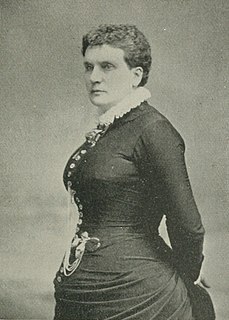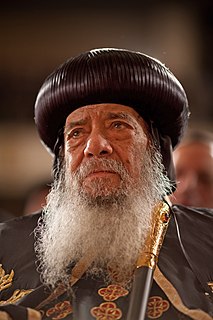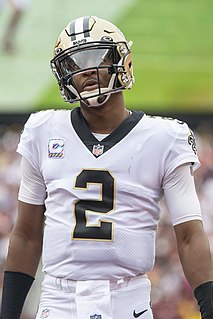A Quote by W. E. B. Du Bois
I refused to teach Sunday school. When Archdeacon Henry Phillips, my last rector, died, I flatly refused again to join any church or sign any church creed. From my 30th year on I have increasingly regarded the church as an institution which defended such evils as slavery, color caste, exploitation of labor and war.
Related Quotes
Has God no living church? He has a church, but it is the church militant, not the church triumphant. We are sorry that there are defective members, that there are tares amid the wheat. . . . Although there are evils existing in the church, and will be until the end of the world, the church in these last days is to be the light of the world that is polluted and demoralized by sin. The church, enfeebled and defective, needing to be reproved, warned, and counseled, is the only object upon earth upon which Christ bestows His supreme regard.
When you go to a church and you see the pastor of that church with a philosophy and a program that's designed to bring black people together and elevate black people, join that church. Join that church. If you see where the NAACP is preaching and practicing that which is designed to make black nationalism materialize, join the NAACP. Join any kind of organization, civic, religious, fraternal, political, or otherwise that's based on lifting the black man up and making him master of his own community.
As the magistrate has no power to impose by his laws the use of any rites and ceremonies in any church, so neither has he any power to forbid the use of such rites and ceremonies as are already received, approved, and practised by any church; because if he did so, he would destroy the church itself; the end of whose institution is only to worship God with freedom, after its own manner.
[A.J. Muste] was from Michigan and he grew up in the Dutch Reform Church there, which is a fairly strict church. He later came to New York. He was the minister of a labor temple in the - on the East Side. Then he founded, to my knowledge, the first, maybe the only, labor school; that is, Cornell has a labor department and other schools. But this was a school for - entirely for labor organizers, and he was the - the chairman.
Religion is not the hero of the day, but the zero. In any exposition of the products of brains, the Sunday-School takes the booby prize. . . . Man has asked for truth and the Church has given him miracles. He has asked for knowledge, and the Church has given him theology. He has asked for facts, and the Church has given him the Bible. This foolishness should stop. The Church has nothing to give man that has not been in cold storage for two thousand years. Anything would become stale in that time.
What James Madison and the other men of his generation had in mind when they wrote the First Amendment was that there should be no official relationship of any character between government and any church or many churches, and no levying of taxes for the support of any church, or many churches, or all churches, or any institution conducted by any of them.
And I profess still, that whatsoever the church of England (the church, I say, not every doctor) shall forbid me to say in matterof faith, I shall abstain from saying it, excepting this point, that Jesus Christ, the Son of God, died for my sins. As for other doctrines, I think it unlawful, if the church define them, for any member of the church to contradict them.


.gif)



































